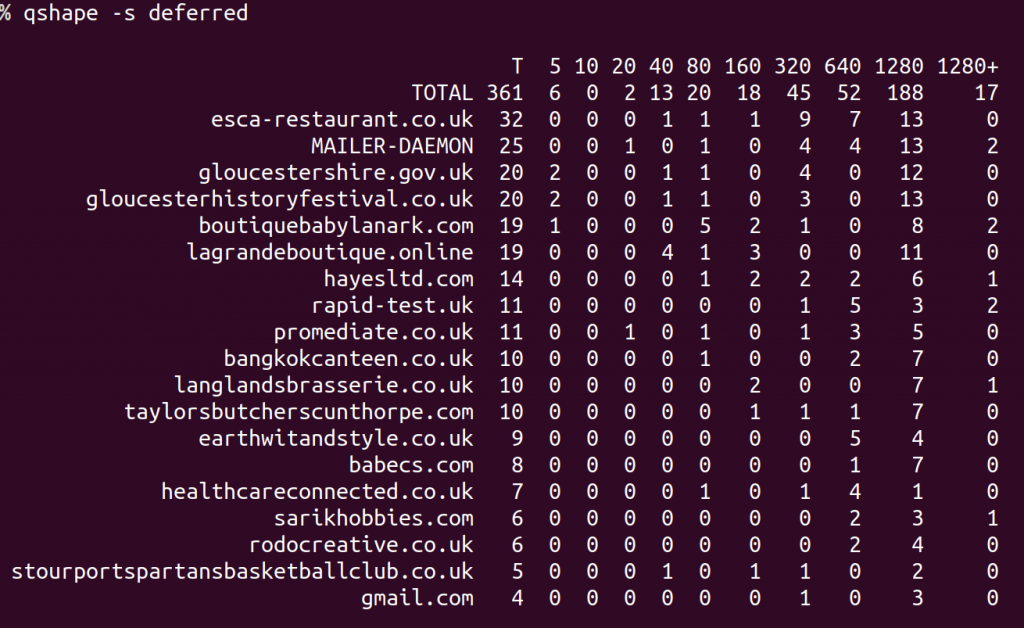Arbitrary tweets made by TheGingerDog up to 13 September 2020
Continue reading “Automated twitter compilation up to 13 September 2020”
Linux, PHP, geeky stuff … boring man.
Arbitrary tweets made by TheGingerDog up to 13 September 2020
Continue reading “Automated twitter compilation up to 13 September 2020”
Somehow I’ve only just found out about ‘qshape’.
It’s a nice little tool to help show what’s going on, on a postfix based mail server.
You can summarise by sender (-s) and choose the queue …. which is a bit easier than trying to spot patterns in the ‘mailq’ output.

Arbitrary tweets made by TheGingerDog up to 06 September 2020
Continue reading “Automated twitter compilation up to 06 September 2020”
Arbitrary tweets made by TheGingerDog up to 30 August 2020
Continue reading “Automated twitter compilation up to 30 August 2020”
Arbitrary tweets made by TheGingerDog up to 23 August 2020
Continue reading “Automated twitter compilation up to 23 August 2020”
Arbitrary tweets made by TheGingerDog up to 16 August 2020
Continue reading “Automated twitter compilation up to 16 August 2020”
Arbitrary tweets made by TheGingerDog up to 09 August 2020
Continue reading “Automated twitter compilation up to 09 August 2020”
Arbitrary tweets made by TheGingerDog up to 02 August 2020
Continue reading “Automated twitter compilation up to 02 August 2020”
Arbitrary tweets made by TheGingerDog up to 26 July 2020
Continue reading “Automated twitter compilation up to 26 July 2020”
Arbitrary tweets made by TheGingerDog up to 19 July 2020
Continue reading “Automated twitter compilation up to 19 July 2020”